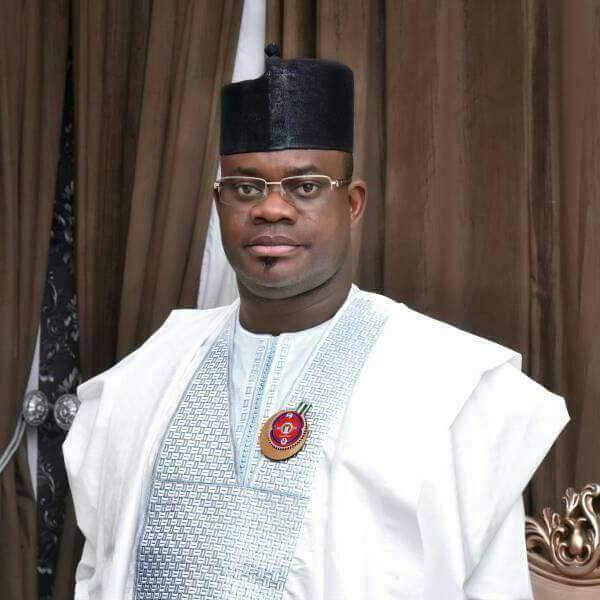
As Kogi State Governor Yahaya Bello bows out this week after eight years, Deputy Editor EMMANUEL OLADESU examines his achievements and the challenges that will confront his successor, Usman Ododo.
Eight years ago, his name did not ring bells. He was largely perceived as a nominal governorship aspirant on the platform of the defunct Action Congress of Nigeria (ACN). But, fate catapulted him to the front burner, following the demise of former Governor Abubakar Audu, who was on the eve of victory.
Yahaya Adoza Bello took Kogi State by storm from his inauguration day in Lokoja, the state capital. He was underrated as a youth without much political experience and appeal, an upstart, an oportunist who reaped where he did not sow and a curious manifestation of a generational gap; full of youthful exuberance.
Eight years after, Bello, fondly called the White Lion, is bowing out in a blaze of glory, with many achievements that surpassed the feats of his predecessor, Captain Idris Wada.
Last week, there was a departune from partisan, inter-party acrimony. Wada visited the outgoing governor to congratulate him on his performance in the areas of education healthcare, security and infrastructural development.
However, the greatest achievement of Bello is his successful succession plan. Apart from serving two terms, he is handing over to a chieftain of the party, Usman Ododo, former Accountant-General of the state, who had worked closely with him. The significance of succession in Kogi is the obvious dismantling of the vestiges of zoning in the highly heterogeneous state. The successor is from the same ethnic group like him.
Justifying the succession plan, the governor said merit and competence should displace ethnic consideration in leadership recruitment.
Ododo is expected to build on these legacies as he receives the baton from his leader on Saturday.
It is ironic. In the last eight years, Bello has fostered cohesion, integration and inclusion among the various ‘tribes.’ The state executive council has reflected the shades of opinion and ethic balance. The outgoing governor has also attracted into his team technocrats who are indigenes and non-indigenes. The team was also gender sensitive while youths accounted for sixty percent of the cabinet representation.
A lawyer, Moses Okezie, who was director of reseach of the governor’s campaign organisation, said while the management of diversity in Kogi by Bello has contributed to unity and peaceful coexistence among the ethnic nationalities, the state has also played host to Nigerians from across the federation. He lauded Bello for promoting inclusion, thereby fostering a sense of belonging and brotherhood.
Collaborating Okezie’s view, former Information Commissioner Kingsley Fanwo said none of the ethnic groups is excluded in critical appointments. “This is necessary. It is non-negotiable to ensure unity and peaceful coexistence among our diverse people. But, competence is never compromised,” he added.
Bello has tried to fight infrastructure battle within the limit of the available resources. His projects are evenly spread across the three senatorial districts. He has also listened to traditional rulers’ quest for more recognition by upgrading them without unsettling long standing tradition of heirachy in native authorities.
Two weeks ago, the governor expressed happiness that the university established by his administration held a matriculation for new students. It was his own way of expanding tertiary educational opportunities for indigenes.
The Reference Hospital, Okene, has been commissioned and many experts have hailed the initiative because it will stem medical tourism abroad.
Bello has also tackled security challenges, including kidnapoings, banditry, armed robbery, assassinations, herders/farmers clashes, and other forms of violence in the Confluence State.
Prior to the inception of his administration, terrorism, kidnapping, bank robbery, high way robbery, pipeline vandalisation, politically motivated killings, settlers/host community clashes, communal clashes and cultism created nightmare for the people of the state.
Although the governor inherited a very volatile security situation, observers pointed out that he has restored sanity into a state of pandemonium through his concrete policies and programmes specifically designed to tackle the menace.
Giving an insight into the causes of insecurity in Kogi, the former Security Adviser, Commander Jerry Omodara (retd), said they revolved around the unique geographical location of the state, which shares boundaries with nine states and the Federal Capital Territory (FCT).
He added: “This has made the state vulnerable to all sorts of criminal activities. In addition, the use of unemployed youths as tools for political thuggery compounded the situation. This, coupled with the low level of collaboration and synergy among security agencies as well as lack of well-structured intelligence gathering network affected the attainment of unified security architecture.
“Volunteer organisations like the vigilante service to tackle emerging challenges, especially at the community level, were lacking.”
Bello, who said vigilance is key, added: “I have made all citizens intelligence officers to secure Kogi because security is the business of everyone. In less than 24 hours, we detect crimes and deal with the perpetrators.”
To ensure efficiency service delivery and good governance, the governor had embarked on civil service reforms. Bello appointed Dr. Folasade Ayoade, a deputy director with the National Agency for Food and Drug Administration and Control (NAFDAC), as Secretaryto Government.
Few weeks after her resumption at Lokoja, the state capital, she embarked on a critical evaluation of the civil service.
She got to her office one working day around 8. am. The State Secretariat was almost empty. Dr. Ayoade was taken aback at the disposition of the civil servants to work. She instantly commenced an on-the-spot of assessment of the multiple offices; from ministry to ministry, and department to department.
What the Secretary to Government (SSG) saw starred her in the face. Few workers on ground were loitering around the secretariat. It was evident that some had absconded duty without permission. Many of those who reported for work were idle. It was alleged that some had even turned their offices into mini-shops, selling biscuits, colanut, groundnut, pure water etc.
It was a picture of a dispirited civil service characterised by lackadaisical attitude to wok, poor motivation, lack of monitoring, absence of proper supervision, eclipse of discipline and loss of sanity. All these made the civil service a compelling and comprehensive failure.
While a virile civil service is an asset, Kogi’s pre-2015 experience was a wide departure, making it a liability. “I met a huge wage bill and a huge debt due to undefined salary structure and over-bloated service compounded by ghost workers,” Ayoade lamented, stressing that the monumental corruption constituted a drain on the state treasury.
“We had to confront embezzlement and sharp financial practices in the civil service and MDAs,” she added.
It was an awful picture. The Internally Generated Revenue (IGR) was not remitted to government coffers. It ended in private pockets, to the detriment of the state.
Ayoade, who confirmed the official sleaze, graft and culture of ‘steal and go,’ said she dared the cesspit of corruption in the interest of the state. The result was proper accounting, owing to the Treasury Single Account.
The poor attitude to work also ended. The poor confition of service was tackled. A conducive environment was provided. Backlog of salaries were paid and promotions were effected with correspnding financial backing.
Ayoade got the governor’s permission to do three things.
First, Ayoade, in tackling the duplication of duties, canvassed a merger modality’. The systematic harmonisation was cost-effective.
Second, the SSG embarked on personal audit, which became a permanent routine. The staff verification yielded positive results. To her consternation, 9,000 ghost workers milking the state treasury were discovered and instantly purged.
Third, general discipline was restored among the workforce. The system of reward and penalty was instituted. More shoddy deals by unscrupulous events in the civil service were halted.
Also, the government confronted the menace of interlopers, particularly retired officers who indulged in collecting salaries and pensions.
But, more worrisome were the infractions by unpatriotic civil servants who were sustaining the names of dead people on the payroll.
To maintain a clean break from the past, the administration had to digitalise Kogi Public Service and blocked the loopholes.
Other reforms embarked by Bello included civil serbice training, competence examination for potential permanent secretaries, distribution of permanent secretaries to reflect the state’s diversity, and constant appraisal.
Since 2015, Kogi Civil Service has also taken keen interest in life after retirement. It has keyed into the Contributory Pension Scheme introduced by the Federal Government in 2004. This enables workers to save for the rainy day. “Apart from paying wages and pensions regularly in appreciation of workers’ commitment to the “New Direction Agenda,” we also sensitise workers, who are potential retirees, to the import and challenges of retirement as they cannot be in the service for ever.” Ayoade said.
The state has also embarked on the reforms of the local government system, in a bid to make it an effective unit for service delivery at the grassroots. This is crucial to the ease of administration across the state.
As Ododo takes over, observers expect a government of continuity. The ongoing projects sjould not be abandoned. The new governor should strive to surpass the achievements of his predecessor and sustain his good legacies.
The state’s revenue base has to be expanded without imposing unnecessary burden on indigenes.
Ododo has been a technocrat. He revently crossed the bridge from the civil service to the slippery political field. He needs to hone his political skills which are critical for cordial relations with the party structures and other stakeholders.
Since pressure may be exerted on him by external forces to review some of the existing policies and programmes, he should not be in a hurry. He should consult well with the party leadership and carry everybody along.
Ododo will also have to brace for the challenge of managing his predecessor to avoid successor-predecessor crisis capable of distracting his attention from governance.
You may be interested

Boniface Scores As Leverkusen Beat Bochum, Close In On Bayern Munich
Webby - March 28, 2025Victor Boniface was on target for Bayer Leverkusen in their 3-1 home win against Bochum in the Bundesliga on Friday…
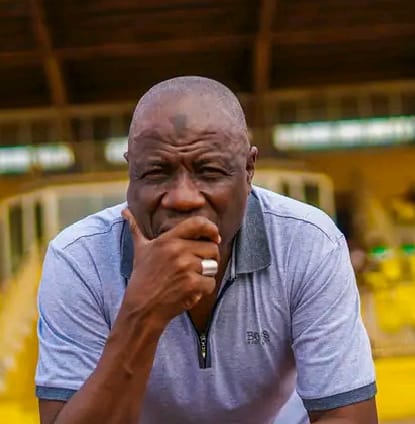
NPFL: Defeat To Kwara United Painful — Nasarawa United Boss Yusuf
Webby - March 27, 2025Nasarawa United head coach Salisu Yusuf has reacted to his team’s 1-0 loss to Kwara United, reports Completesports.com. Emeka Onyema…

Cote d’Ivoire Withdraw As Host Of U-20 AFCON
Webby - March 27, 2025Cote d’Ivoire announced late Tuesday its withdrawal from hosting the 2025 U-20 Africa Cup of Nations just weeks before the…




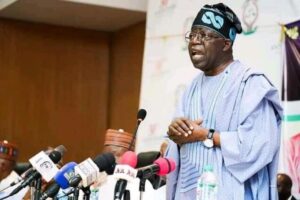









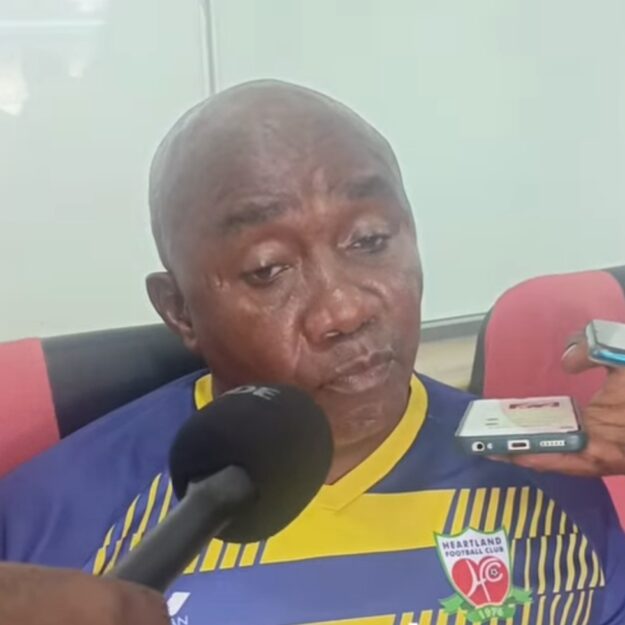


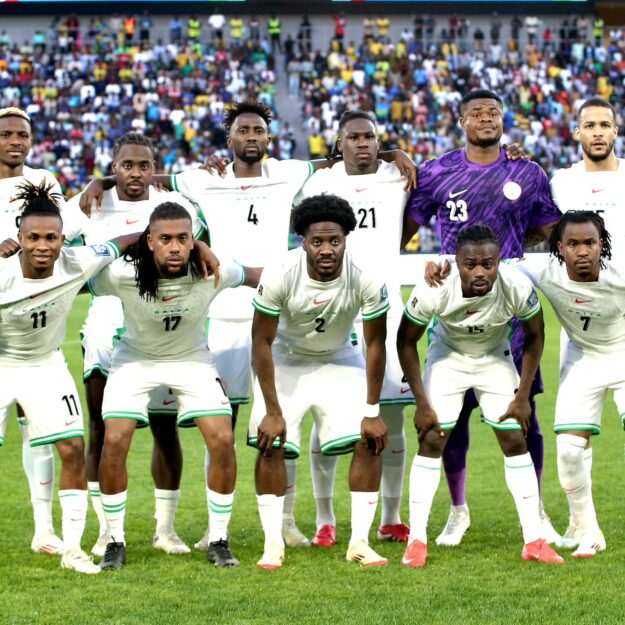


![American Pastor, David Wilson Seen Eating The Box Of Woman Who Isn’t His Wife [Video]](https://onlinenigeria.com/wp-content/uploads/2019/10/american-pastor-david-wilson-seen-eating-the-box-of-woman-who-isnt-his-wife-video-150x150.jpg)









